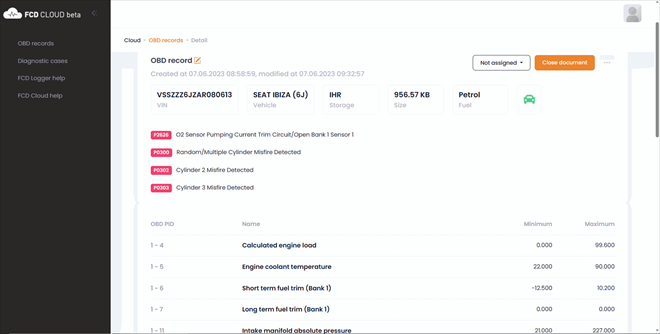
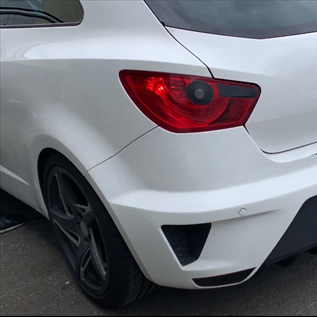
A sympathetic young man came all the way from České Budělovice with his recently exchanged Seat Cupra 1,4 TSi for his original Opel Astra Tourer 1,6 CDTi. The original owner, however, had concealed the Seat's imperfections, which was impossible to drive after two days. After replacing several components on the engine, he gave up trying to repair it, wanting to solve the jerking, popping exhaust and cylinder #2 & #3 shutdowns forever.
When he parked the car in the FCD Garage that evening, I could already "guess" by the sound of the high-pressure pump and, from his indications, that I would be holding an oscilloscope and measuring the low and high fuel pressures. But I was wrong in my secret "prediction" on "fuel". It's good that I haven't been guessing aloud for at least ten years.
After ten minutes of staring at the graphics of the log recorded by the FCD Logger, everything was clear. The owner asked if the popping exhaust could be related to a fault stored in the automatic transmission control unit. I almost confidently dismissed it. But now I was knocking on my forehead. How could the transmission pop the exhaust and then shut off the injectors?
You can read the full case description and see how everything is connected. It's free to all readers!
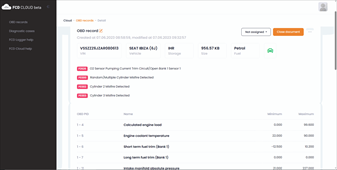
Those who don't make wide logs and don't follow the FCD DECATHLON are doomed to listen to their brain, which logically locks on to the faults stored in the engine's ECU. Well, who would have guessed the transmission caused these faults?
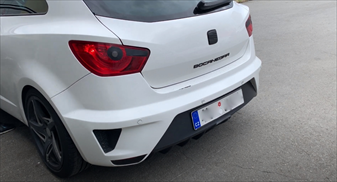
The catalytic converter burned out, most likely due to a transmission fault.
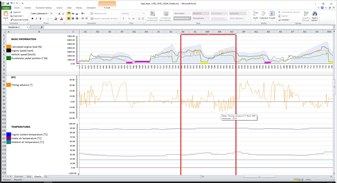
These controlled step changes into negative advance values are also caused by a transmission problem.
Komentáře (0)
Vložit soubor